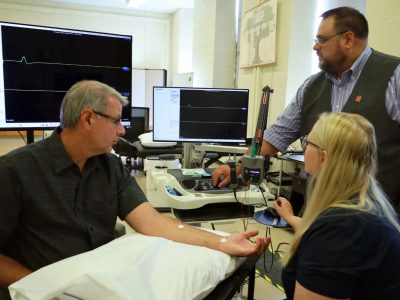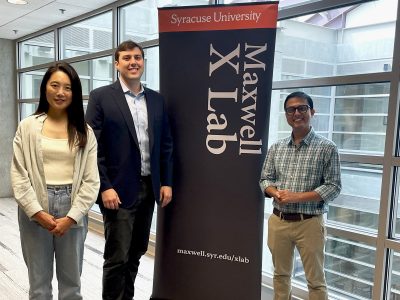The Impact of China’s Rapidly Aging Society
Due to its economic growth and large population, the People’s Republic of China is widely viewed as a rising economic and military superpower. But declining fertility rates and increased life expectancies over the last few decades have conspired to make China one of the more rapidly aging societies in the world.

Merril Silverstein, the inaugural holder of the Marjorie Cantor Endowed Professorship in Aging (a joint appointment in Syracuse University’s Falk College of Sport and Human Dynamics and Maxwell School of Citizenship and Public Affairs), is an expert on aging in the context of family life who’s uniquely qualified to examine the impact of China’s aging population.
Silverstein, a professor in the Department of Human Development and Family Science at Falk and chair of the Sociology Department in Maxwell, is editor of the 2022 book “Aging Families in Chinese Society,” which was recently released in paperback. The book focuses on the accelerated social and demographic changes in China and examines their implications for family care and support for older adults.
Combining quantitative data from social surveys in China, comparative surveys in Taiwan and Thailand, and qualitative data from in-depth interviews, “Aging Families in Chinese Society” explores the various challenges facing aging families in China as a result of reduced family size, changing gender expectations, rapid economic development and urbanization, rural-to-urban migration, and an emerging but still underdeveloped long-term care system.
To dive into this topic in more detail, we asked Silverstein to discuss this phenomenon and its impact across the globe. Here’s that conversation:



